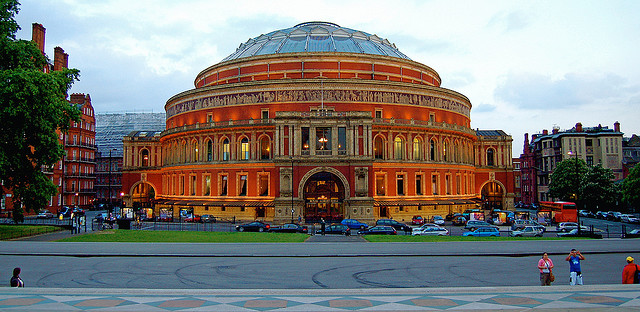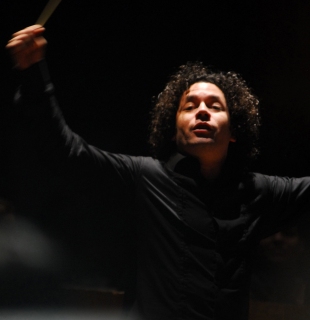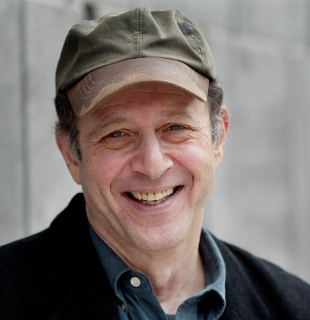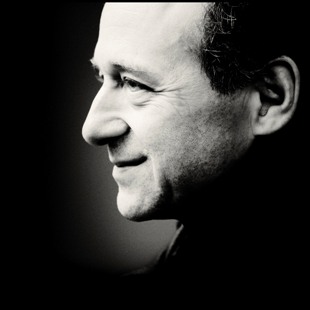The New York Philharmonic said on Monday that it would give a special memorial concert to mark the 10th anniversary of the Sept. 11 terror attacks: a free performance of Mahler’s Symphony No. 2, the “Resurrection,” at Avery Fisher Hall.
New York
Say the name Anton Bruckner, and majestic instrumental sonorities blaze across one's mind—emotional gestures against a backdrop of trembling strings, great motto-like themes of Wagnerian brass, rhythmic motifs weighty and satisfying.
Historians have often paired this architect of sonic cathedrals with his contemporary and aesthetic opposite, Johannes Brahms (1833-1897)た—Bruckner in the role of Wagnerite symphonic prophet and Brahms as Romantic Classicist. Bruckner (1824-1896) has also been paired with his much younger admirer Gustav Mahler (1860-1911), whose symphonies adopt Bruckner's vast scale, but with more stylistic eclecticism. But this week's series of four concerts by the Cleveland Orchestra at the Lincoln Center Festival represents the first time Bruckner's music has been paired in depth with that of John Adams, one of America's supreme composers.
Wednesday's opening program juxtaposes Mr. Adams's Dantean "Guide to Strange Places" with Bruckner's brooding, tragic Symphony No. 5 in B-flat. On Thursday, the Adams Violin Concerto (with soloist Leila Josefowicz) will be followed by the 1883 edition of Bruckner's Symphony No. 7 in E (containing the composer's tribute to his recently deceased idol, Richard Wagner). The third concert, on Saturday, is consecrated to Bruckner's colossal and contemplative Symphony No. 8 in C-minor, in the richer, longer, less frequently performed original version of 1887. The fourth and final concert in the series, on Sunday, pairs Mr. Adams's "Doctor Atomic" Symphony, derived from his eponymous opera about the creation of the atomic bomb in 1945, with Bruckner's valedictory Symphony No. 9 in D-minor, its finale left unfinished at his death.
The programs were the idea of the orchestra's music director, the Austrian-born Franz Welser-Möst, who will be conducting them. Discussing the subject by phone, he says that "some years ago I was given a recording of 'Guide to Strange Places'—it may have been of the first performance. As I listened, immediately it struck me that there are so many similarities with Bruckner's music."
Though we tend to characterize Bruckner's style as full-blown late Romanticism, Mr. Welser-Möst provocatively observes that "Bruckner is also a Minimalist. He and Adams build many of their large structures out of little motifs that repeat, grow and evolve over long stretches of time." This Brucknerian technique, as well as a Brucknerian darkness, he says, is especially evident in "Guide to Strange Places" (2001).
The Cleveland Orchestra
Avery Fisher Hall
July 13-17
"That's where the idea came from," Mr. Welser-Möst notes. "And I thought it would be interesting to investigate, through comparison with John Adams's music, the many ways that Bruckner's work is so modern."
Also speaking by phone, Mr. Adams at first emphasizes that he feels somewhat awkward discussing these concerts, "because whatever I say can sound self-congratulatory. And I don't feel that way at all. In fact, I am somewhat awe-struck by this idea." Nevertheless, he says of the pairing of Bruckner's Fifth with his own "Guide," with its atmosphere of darkening tension: "There is certainly something in it very similar to the Fifth. Bruckner's scherzo movements are definitely large-scale and often weighty. They exhibit a Germanic or Austro-Germanic humor that is similar to a very dark underlay of humor that is always an element in the 'Guide to Strange Places.'"
The humor of both composers is something that Mr. Welser-Möst also wants to highlight. "Actually a lot of Bruckner's music has a playful side," he says, "just like the playful element in Adams's Violin Concerto."
Though he credits Mr. Welser-Möst with choosing the different pairings, Mr. Adams says that he himself "suggested the 'Doctor Atomic' Symphony because I thought it a good match with Bruckner because it's short. And because both works share a powerful emotional sensibility."
Certainly, the Purcell-like pathos of the "Batter My Heart" finale of the "Doctor Atomic" Symphony—a trumpet solo replacing the baritone voice of the opera—offers a moving counterpart to the spirit of deep humanist introspection in Bruckner's Ninth.
Bruckner's concept of large-scale time frames is another modernist aspect that Mr. Welser-Möst intends to explore, especially by performing the first version of the Eighth, "which is much more revolutionary" than the shorter revised version. "It's like attending the third part of Wagner's 'Ring' cycle," he says. "And because this version is so wonderful and so rarely performed—and fills a full evening—we decided to present it on its own." Mr. Welser-Möst feels, moreover, that "today we have a collective experience of Schoenberg and Berg and of American composers like Adams and like Morton Feldman"—some of whose mesmerizingly slow-moving works last for several hours. "This experience allows us to approach Bruckner in a new and different light."
To the comment that Bruckner symphonies often remind one of the great vaulted ceiling of the Sistine Chapel, Mr. Welser-Möst exclaims that is "something I also see in his music. It is rooted in the Baroque Catholic tradition, and his choral and organ music have ties even further back in history to the Gregorian chant repertoire that the monks of St. Florian had been singing for centuries when Bruckner was organist there. So he represents a summation of an incredible arc of time. But he was also a child of his own time, writing in a Wagner-oriented sound language. And we know that he was completely blown away the first time he heard 'Tannhäuser,' one of the most erotic pieces of music ever written. Bruckner refers to 'Tristan' in the Seventh Symphony and in the slow movement of the Ninth. And when you listen to the Eighth and the Ninth, you hear anticipations of Alban Berg and further things that you will find again in Stravinsky and in Messaien, and which you also find again in John Adams."
Certainly spatial and spiritual qualities seem to join both composers. Even in Mr. Adams's densest orchestral writing, with its textures of frantic repetitive motifs, there is frequently a palpable spatial sensibility. Does Mr. Adams hear this as a tie to Bruckner's legacy or as evidence of a similar penchant to build large structures out of tightly constructed, repeated motivic cells and a very slowly moving harmonic rhythm?
"That's definitely one of the significant potentials of Minimalism," he replies. "Right from the start the ideas of slow motivic growth and slow harmonic rhythm proved ideal for the creation of large structures. From its inception, Minimalism was adaptable less to the compact utterance of postwar serial composers like Györgi Kurtág and Györgi Ligeti, but seemed instead to generate and celebrate large, formal architecture."









